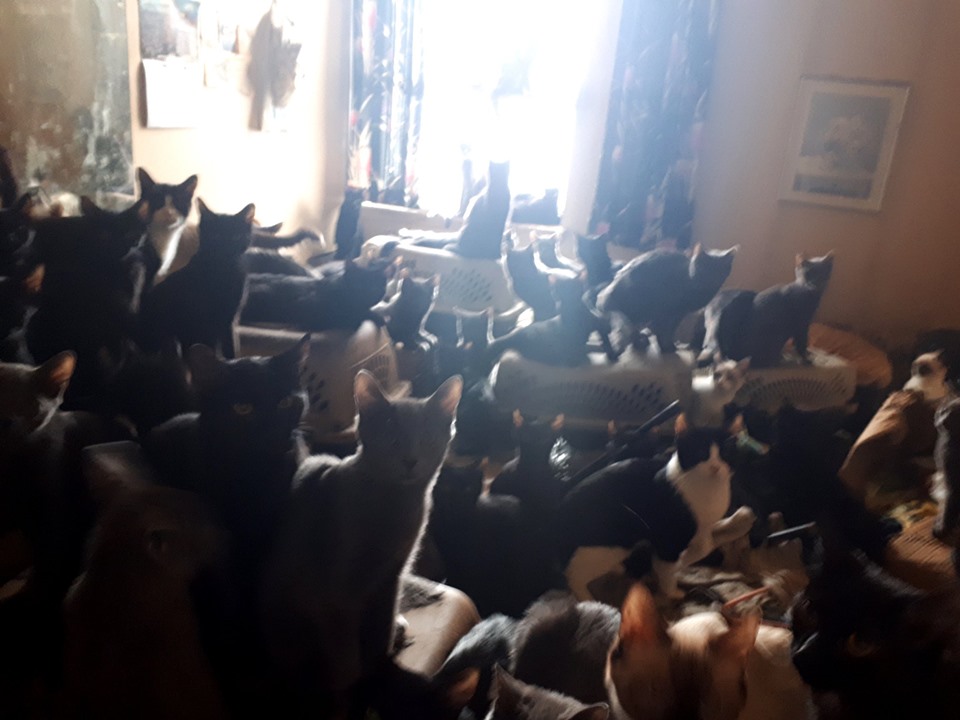
TORONTO — Nearly 300 cats found in a Toronto apartment were breeding freely, occupying every room and littering the entire living space, city officials said Monday as animal workers focused on moving the felines out of the cramped home.
Urine and feces found throughout the apartment led to “air quality issues,” with staff required to wear protective gear before entering, said Mary Lou Leiher, the program manager for Toronto Animal Services.
“There were cats everywhere,” she said. “But the cats are doing remarkably well.”
Leiher said, however, that despite the cats being healthy, the conditions of the apartment were “a really bad situation for them to be living in.”
So far, the city has removed 171 cats from the apartment, she said, with about 100 more still in the home that workers are continuing to check on as they find places for them to live. Leiher said the residents of the apartment are no longer living there.
A city bylaw prohibits people from owning more than six cats in one home.
Animal services got a call from Toronto Community Housing, which is responsible for the building where the cats were living, and Toronto Public Health last week alerting them to the situation, Leiher said. Workers arrived on Friday to tackle the situation, she said.
Staff geared up in hazardous material suits with a respirator to ensure their safety, Leiher said.
“It was an extraordinarily high number for one unit,” she said. “Our guys are professionals and they’re ok, but it’s definitely disturbing.”
The city worked with several animal organizations to deal with the situation, including Toronto Cat Rescue and the Toronto Humane Society.
Toronto Cat Rescue said it took 79 cats, many of which are pregnant and expected to give birth shortly, said the organization’s executive director, Belinda Vandersluis.
“They’re doing really well, playing, eating — some are quite shy and a little stressed out, some are a bit thin, but for a situation where they’re living with nearly 300 cats in a small apartment, they’re doing quite well,” Vandersluis said.
A staff member from the rescue organization went to the apartment on Saturday and found it “fairly traumatic,” she said.
“It’s a very difficult place to be, with that environment and that smell and the amount of waste that was there,” Vandersluis said.
Both the city and the rescue organization said the cats were not spayed or neutered and were allowed to breed uncontrollably.
“I think the situation is the cats in their home had litters of kittens and those litters of kittens had litters of kittens and so on,” Vandersluis said.
The group said it was able to find spots for the large number of cats due to its extensive volunteer network. She said the cats will be spayed or neutered, vaccinated and observed in their foster homes before being put up for adoption.
Leiher said the city has a mobile spay-neuter clinic where the surgeries can be performed inside the truck. She said residents who are unable to sterilize their cats for financial or physical reasons can call the city’s 311 line and may qualify for waived fees.